Almost two months have passed since the 8 March demonstrations, when a collection of women from very different backgrounds came together across Spain to raise their voices against issues such as the gender pay gap, the uneven distribution of domestic work, the unpaid and unacknowledged work that some women undertake, gender-based violence and sexual assault, among other topics. In Euskadi, in the Basque capitals alone official city police figures indicate that more than 60,000 people took to the streets of Bilbao during the afternoon, more than 12,000 came out in Vitoria and more than 5,000 did so in San Sebastián. In Gipuzkoa the day also had a significant following in Arrasate, Irun, Eibar, Tolosa and other locations.
Euskoiker was keen to ask female teaching and research staff that undertake projects with us to talk about their impressions of the day and the issues that it sought to address. Eleven female teaching and research figures have shared their personal perspectives of the events of that day with us.
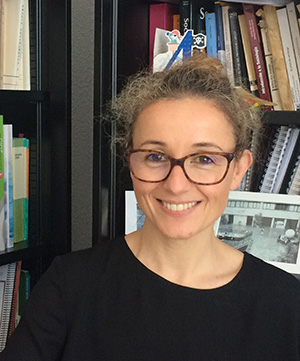 Patricia Campelo Martinez. Departament of Sociology and Social Work.
Patricia Campelo Martinez. Departament of Sociology and Social Work.Patricia Campelo Martinez, from the Department of Sociology and Social Work, felt that the day “began days, or even weeks, beforehand”, in the sense that “the media, public commentary, the atmosphere on the streets and also in the university” indicated that this day would be “different to its predecessors, in both qualitative and quantitative terms”. And so it was. We saw “the front line of all of the feminist movements and forms of activism: the calling-out of illegal practices, abuses and injustices in addition to the generation of reflection and debate”. It was also evident that a significant number of women who were not necessarily active participants in these movements had still come out onto the streets. From a personal point of view, Patricia considers herself privileged in aspects beyond gender: because of her age (44) she was able to join the university community “at a time when the economy was expanding” and this created a more favourable scenario in which she was able to gain access to a permanent position. “Sadly, this is not the general situation” for “subsequent generations in which uncertainty and vulnerability have, to a large extent, become the norm”.
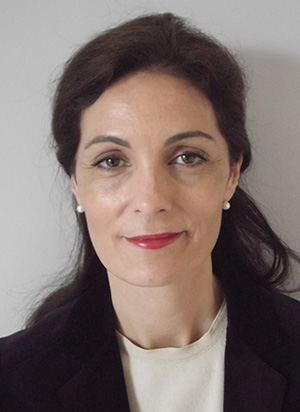 Rosa Río Belver. Departament of Business Organisation.
Rosa Río Belver. Departament of Business Organisation.For Rosa María Río Belver, from the Department of Business Organisation, “society is moving towards greater equality” but “there is still a lot of progress to be made”. One of the most significant areas in which action is needed is the family unit, “where there are still notable differences between the responsibilities of mothers and fathers” which force women to take on “more family duties and more responsibility than men, creating burdens that hinder their career development”. In Rosa’s opinion, “the university is progressing more quickly and resolutely than society as a whole in terms of gender equality”. However, there remains room to lead changes from within the university, “from which we can, and should, support structural changes in favour of equal participation through conciliatory measures which support women and set a positive example for wider society”.
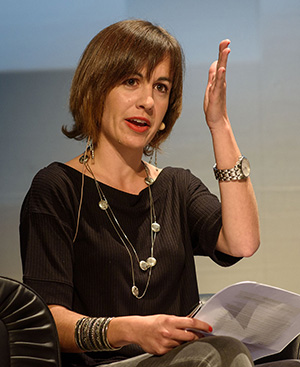 Katixa Agirre Miguélez. Departament of Audiovisual Communication and Advertising
Katixa Agirre Miguélez. Departament of Audiovisual Communication and AdvertisingKatixa Agirre Miguélez, from the Department of Marketing and Audiovisual Communication, participated in the day of activism and, as far as possible, took part in a “care strike, although in practical terms this is more difficult than a work-related strike”. Katixa feels that all of the calls for change that were raised on the day were legitimate because “all of us, as women, have been subject to one of these forms of discrimination. The more privileged women (of which I consider myself one) have suffered this to a lesser, or to a less violent, extent but it is our duty to support those that are facing a more difficult situation than we are”. In her experience, she most suffered from the gender gap when she became a mother, “not just through the hiatus created by maternity leave (which is genuinely damaging in this so-called “academic career path)”, but also because she had to “slow the pace” afterwards. “It is virtually impossible to go to conferences, attend events and, in general, research in the same way that I did before”. Although an increasing number of men are now involved in bringing up children, it is women that are most aware of “the turning point that becoming a mother involves” and it would therefore be helpful to take this into consideration when designing measures to bring us closer to effective equality.
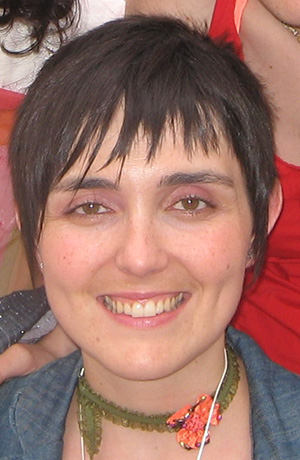 Andere Larrinaga Cuadra. Departament History of Art and Music
Andere Larrinaga Cuadra. Departament History of Art and MusicAndere Larrinaga Cuadra, from the Department of History of Art and Music, took part in the activities by joining a strike for “all of the teaching and tutoring staff that this day concerns” and by attending demonstrations that were organised in her area. She feels that 8M was “a historic day for shining a light on the work-related and social roles that women perform today, and for continuing to fight for the need to consider the topic of gender in every possible area of life in order to avoid prevent serious inequalities from arising”. Her impression of the day's experience was extremely positive, as was her perception of the potential for “making the younger generations aware of these challenges”. She attended the demonstrations with her two children: her seven-year-old daughter and her two-year-old son. Although she emphasises that in the course of her work she has always felt that “we, as men and women, had equal opportunities", she also acknowledges that during her maternity leave period and when she was looking after her young children she was aware that “slowing down my scientific output could undermine me and yet there was no way for this to be taken into account”.
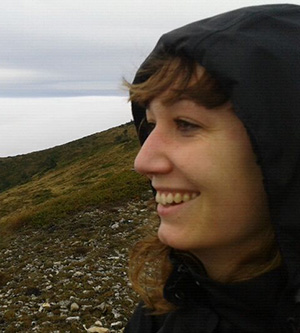 Elena López de Arana Prado. Departament of Teaching and School Administration.
Elena López de Arana Prado. Departament of Teaching and School Administration.Elena López de Arana Prado, from the Department of Teaching and School Administration, had some doubts about the day. Her issue was not with the cause, which she supports “wholeheartedly", but rather the fact that given that this was a workplace strike, the trade unions needed to issue a call to “legitimise it” and she regrets that they were not capable of acting in unison: “Would it have been so difficult to have come to an agreement to call one event?” She also found the issue of delegating tasks and care duties to be complicated: “To whom? To the partner? And what if the partner is another woman, or also wants to take time off? And what about those that lack a partner or a family network? Or those who either cannot or would not consider the idea of delegating?” Elena also criticised the fact that in practice, the university is not that different from other organisations where there is inequality, because although in theory two people occupying the same position are paid the same and have the same set of opportunities, in order to access these opportunities “female academics are forced to choose not to have children, to have children later or to delegate the care of their children or their older family members out to others, compromising on one of the most important aspects of the human experience: personal and interpersonal life”. However, despite all of her misgivings, Elena took part, raised her voice, got involved and felt hopeful, just like all of the other women at the 8M demonstrations.
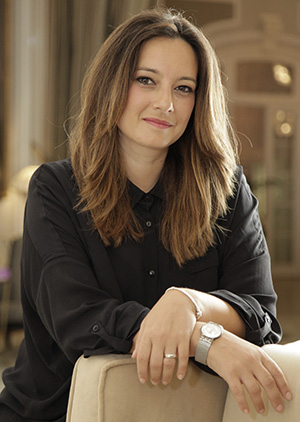 Iratxe Fresneda Delgado. Departament of Audiovisual COmmunication and Advertising
Iratxe Fresneda Delgado. Departament of Audiovisual COmmunication and AdvertisingIratxe Fresneda Delgado, from the Department of Marketing and Audiovisual Communication, told us that she supported “the strike, based on the conviction that it was necessary to show what happens when women stop work, that it was necessary for us to be seen getting together and taking to the streets”. She feels that in other to create a more egalitarian society it is necessary to “let go of certain privileges that are granted through being born into a certain gender, in a certain place and so on” and that this is the way forward towards a “more fair and healthy world”. In her opinion, at the university the conditions for balancing work and family life “are still not sufficient, and this means that the career path of many women that hope to have children becomes a tortuous obstacle course”. The consequence is that “you get everywhere much later”.
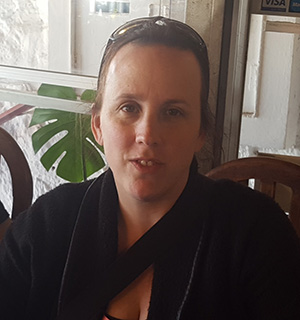 Aitziber Iriondo Hernández. Departamento de IEngineeering and the Environment
Aitziber Iriondo Hernández. Departamento de IEngineeering and the EnvironmentAitziber Iriondo Hernández, from the Department of Engineering and the Environment, could not actively participate in the events despite sharing their sentiment. “I had to continue working as a mother, a manager, an administrator, a cook...” she explained, “because my husband was working late that week and it seemed neither fair, nor in keeping with the spirit of the strike, to ask my mother or my mother-in-law to take care of my five-year-old and eighteen-month-old children”. Although she considers that there is still inequality between men and women, she feels that in her personal situation this is less acute because her husband “does tasks that I used to do, that I don't do any more” and that at work, her salary is “the same as that of a man in the same position as me”. However, she is always on her guard against “situations and comments” that could compromise her “capacity to work” because in many situations these are unfair, yet they can often fly under the radar.
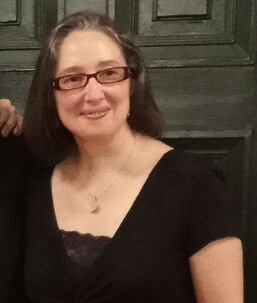 Ana Luisa López Vélez. Departamento de Teaching and School Administration
Ana Luisa López Vélez. Departamento de Teaching and School AdministrationFor Ana Luisa López Vélez, from the Department of Teaching and School Administration, “it was a very joyful and hopeful day”. Ana Luisa was moved by the “number of women from very different ages and backgrounds” that took part in the demonstrations. For her, “having a feminist outlook on every area of life contributes towards social change which benefits both men and women”. What is most important is placing “personal care at the heart of all of our daily activities” and our decisions, and not allowing others to make us “believe that we are not worthy of being looked after, (...), that we have to produce to the maximum, without listening to either our emotions or our bodies, without thinking about the people around us, nor about nature. These messages send us on a path to our own destruction, both as individuals and as a society”. For example, working in the university has become “an endless obstacle-ridden marathon, where we are constantly fretting about our own survival: first the doctoral thesis, then writing influential articles, gaining accreditation; a first position...” We close in on ourselves even though “assuming a feminist position” means “looking out for one another, as male and female colleagues, and seeing how we can help those around us to move forward in their career: if it is the thesis, to guide that person and lend a hand in helping them through a process that we have already undergone; if it is writing articles, by contributing with our own knowledge and experience; if it is teaching, or research, by creating joint paths where one person can learn from the other, while at the same time progressing on an academic level”.
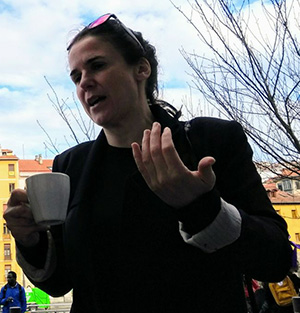 Olatz González Abrisketa. Departament of Social Anthropology and Values
Olatz González Abrisketa. Departament of Social Anthropology and ValuesOlatz González Abrisketa, from the Department of Social Anthropology and Values, was moved when she recalled that “what really changed our perception of the day was seeing the messages from friends that could not come to Moyua and had stayed in Arenal. They started sending pictures from Arriaga, from the circular plaza, and it was packed!” The most obvious testament to the success of the day was “the change in attitude of those parties that had not given their support to the event”. It seems evident that “it will be increasingly difficult for them to question feminist calls for justice”. What remains less clear is what, exactly, is the best approach to take: “Too many times, history has shown us that apparently favourable policies can have disastrous consequences whereas other apparently less favourable ones can lead to considerable progress being made. We can never be totally sure of where real empowerment will emerge from.” However, Olatz is left with the memory of an 8M which was “diverse and very enjoyable, and which really has the power to attract other women and men”.
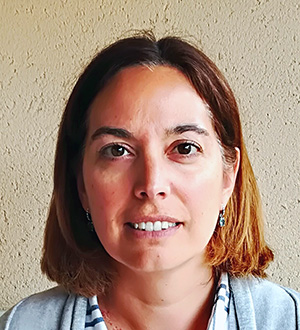 Sofia Ruiz de Gauna. Departament of Communications Engineering.
Sofia Ruiz de Gauna. Departament of Communications Engineering.Sofia Ruiz de Gauna, from the Department of Communications Engineering, took part in the strike through a two-hour shutdown in the morning and she participated in the corresponding demonstration. Her experience of the day was marked by “concern, because the problem is so huge and so complex” and “solidarity, because there are groups of women in extremely challenging workplace situations and because gender-based violence is a social evil”. However, when society comes together in the face of an obstacle it “feels truly amazing", especially for a common cause such as “fighting for equality of opportunity without gender distinctions". Despite the fact that in the university there is still considerable room for improvement and that actions could be developed which target “university students as a whole”, in professional terms, thinking back to her own career history, Sofia considers herself to be “privileged”. She had the opportunity to find a balance and she has not felt “inferior compared to any of her male colleagues, which there are a lot of” because she belongs to “a department with very few women: approximately a third of the teaching and research staff". However, she has heard and read media accounts of other cases of “female researchers that have indeed faced difficulties” and so she sees no reason to be complacent in this regard.
 Francisca Vives. Departament of History of Art and Music
Francisca Vives. Departament of History of Art and MusicAlthough Francisca Vives, from the Department of History of Art and Music, did not agree with some of the strike’s objectives in terms of workplace and other issues, she “wholeheartedly shares” the position that was taken regarding “equality on every level, the gender pay gap and issues relating to sexual assault and violence”. She was pleasantly surprised by the “high level of participation in demonstrations throughout the country” and felt that “this day marked a turning point”, constituting yet another milestone “for raising awareness across society”.
Our interviewees have expressed a diverse range of opinions regarding an equally multi-faceted topic, though the majority shared in many of the calls for change that were raised during the events and felt happy and hopeful during a day in which the presence of the issues sparking the protest was so overwhelming that some political parties had to reconsider their position. Almost all of the women interviewed agreed that 8M constituted a further step forward in a path that is still far from being completed.
On a personal level they felt fortunate because, even belonging to an organisation with a greater degree of equality than others, where the gender pay gap is notably less than the average, they are aware of the hurdles that having children or merely attempting to balance work and family life can generate, especially in the case of younger women who face greater pressure to publish work and gain credit.
There is still much to be done, but we have the best provisions to achieve this: this will be the conclusion that can be drawn from the events that took place during this truly special day.
Do you need an expert? Contact us
What is the benefit of contracting projects with companies?
¿Cómo puedo contratar proyectos con la Universidad?
Euskoiker has more than 30 years of experience managing all kinds of projects